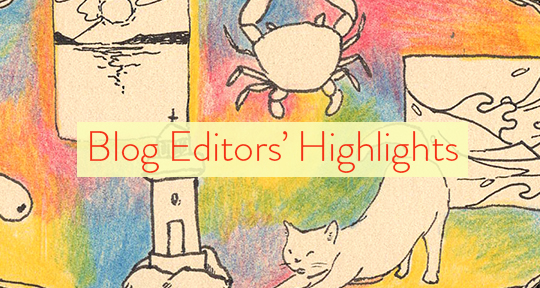In ten years of Asymptote, we’ve brought you a stunning array of texts, from writers familiar to those brought out newly into the light, words of conviction, ardor, invention, and precision have graced our pages, and our history-making Winter 2021 issue is no different. Featuring three new languages—Cebuano, Kahmiri, and Marathi—and deploying works from thirty-one countries in total, we are additionally featuring a curated selection of writings in our Brave New World Literature feature, which presents a myriad of talented voices navigating and graphing the changing landscape of world literature. Here, our blog editors are rounding up their selections of the pieces of the Winter 2021 edition that ignite and inspire.
The notion of a brave new world literature indicates—beyond the trepidations upon coming towards the unknown—the writer’s own, omnipresent fears about their own craft. In writing, one is always fighting against the futility of the word, how it falters to encompass even a single sensation, let alone the impatient fabric of the milieu. Each piece of writing is measured up against its time to determine its true subject, and the works included in our landmark Winter 2021 issue has to bear the comparison to a moment in history that comes close to being immeasurable, both in the frenzied proceedings of markable events, and in the psychic tracks it has carved across the globe, as each person was forced to consider—in distinctly unequal polarities of rumination or emergency—what it means to have lived through, to be living through, such a time.
This seamless interchange between writer, reader, and the present shared between them—the writing must level all three terrains while insulating its cargo of ideas. As I move through this marvelous gallery of texts that the latest issue of Asymptote gathers, I was struck by the various and telling constellations they formed with this precise moment.
In Jan Němec’s excerpts from Ways of Writing About Love, there’s a beguiling—and somewhat precious—self-conscious tone, rendered with grace by David Short, that runs through the three proses, almost as if the writer has already recognized that the bold display on the awning of the text—those two feared and wasted words, writing and love—has already pushed the language deeply into that murky deluge where only those two most indulgent peoples, writers and lovers, would willingly submerge themselves. But as the oral rhythm of the story taps itself out (Němec and Short are to be commended for their preternatural sense of how the voice paces itself), and the symphony of the mind conducts its singular cacophony, one comes to decipher its inner textures, in which writing and love are scrutinized for the particularly heightened quality one achieves during such occupations—attention to how time, and knowledge, and sensuality congregate. READ MORE…


